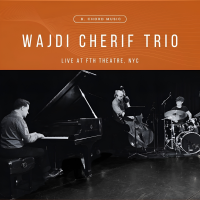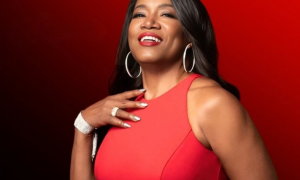Are you ready for a trip down the rabbit hole? Tim Burton, Johnny Depp and Disney are adding a strange new chapter to the Lewis Carroll classic with “Alice in Wonderland," a film that presents a young woman who finds herself in the world of the Mad Hatter, the Cheshire Cat and the Red Queen. She is welcomed as a returning visitor -- but is she in fact the same Alice who roamed the trippy realm as a child? Time will tell. Here at the Hero Complex we're counting down to film's March 5 release with daily coverage. Today it's a conversation with Danny Elfman, the composer of the film's score and Burton's favorite maestro.
GB: I imagine you're feeling pretty good right now. The only thing better than taking on an exciting new project is actually finishing an exciting new project.
DE: Being done with “Alice" is a great relief, to put it mildly. Tim told me six months ago that this one would go right up to the 59th minute of the 11th hour. He knew it then. I was still doing last bits of music on Sunday and that was with the print-mastering beginning Monday. It doesn't get any tighter. But I knew going into it that this would be insanity. That's the nature of the beast. It's a function of motion-capture projects -- you're going to wait for shots to come in. You're trying to finish the movie and the shots are still coming in. Things are happening at the very last second. It's very challenging. But you can only go at the pace that it goes.
GB: What was the very last thing you finished on Sunday?
DE: It was this crazy dance that the Mad Hatter does. It's called the Fudderwacken. That was something we had tried many different approaches before we reached the one that is in the movie.
GB: What were your compass points coming into this project?
DE: Your guiding principles on a narrative type of story like this, it's always the same. The same guiding principles, rather -- hopefully not the same score over and over again. [Laughs] Unfortunately it's common in my business. But we try to avoid it. But really it's about finding the narrative and finding the themes and trying to knit things together and form continuity. The decision-making process is about who gets a theme and who doesn't. You can't just give every character a theme. It just starts getting too crazy.
Experimentation for me is, usually, finding a central theme and then two or three secondary themes and determining how they're going to play. That's the fun of it, the surprise of it, too. Sometimes I'll find I'm using a theme over a character and it's not necessarily their theme and I don't know why I'm doing it, but I'll go with it anyway and there ends up being a certain logic to it -- [the scene] is about a certain character or about a trajectory of a certain character.
GB: I imagine there are many ways to follow a “safe" path that amps up emotion and excitement but can undermine the film's identity, right?
DE: All of it, the challenge is to be inventive but do the purpose, which is to add continuity and to add energy and motion and anticipation and a sense of something building. To get that sense of forward motion. To do it poorly in this kind of film -- a real active film, an adventure film -- is actually really easy. You can always just play for energy, orchestrate something very active. Anybody who understands film composition could that in their sleep. The hard part is, can you do that and still come up with something that gives it a sense of identity? That's really hard.
GB: The framing sequences in the film take place in England of the 19th century. Does that influence any choices you make?
DE: No. In essence, if I just played 19th century music it would get really boring really fast. Even in the context of a serious period piece, a drama, let's say, taking place in the 19th century, you're still perhaps only going to allude to the period. If you get too strict with it, it's going to get really boring. Eventually, you're going to play the characters and you're going to play internally, and when you start playing internally there really aren't any rules. In something like “Alice in Wonderland" there are even less rules. Who knows what kind of music does or doesn't belong in Wonderland, after all? Outside of Wonderland, at the beginning of the film and at the end of the movie, I'm really just trying to establish some of the themes that will come back. Essentially, Alice's primary theme and, because she starts as a little girl, I have what I called the “little Alice" theme, which I bring back later at times. I'm just planting seeds at the beginning of the film.
GB: And then when the film gets to Wonderland?
DE: I open up and get a little crazier, but I'm still incorporating the same thematic ideas. I am a believer in thematic unity and the importance of that in a storytelling film. There are certain types of film where it simply doesn't matter, but when you have a crazy story that you're following through and there are a lot of crazy characters, it does matter.


























